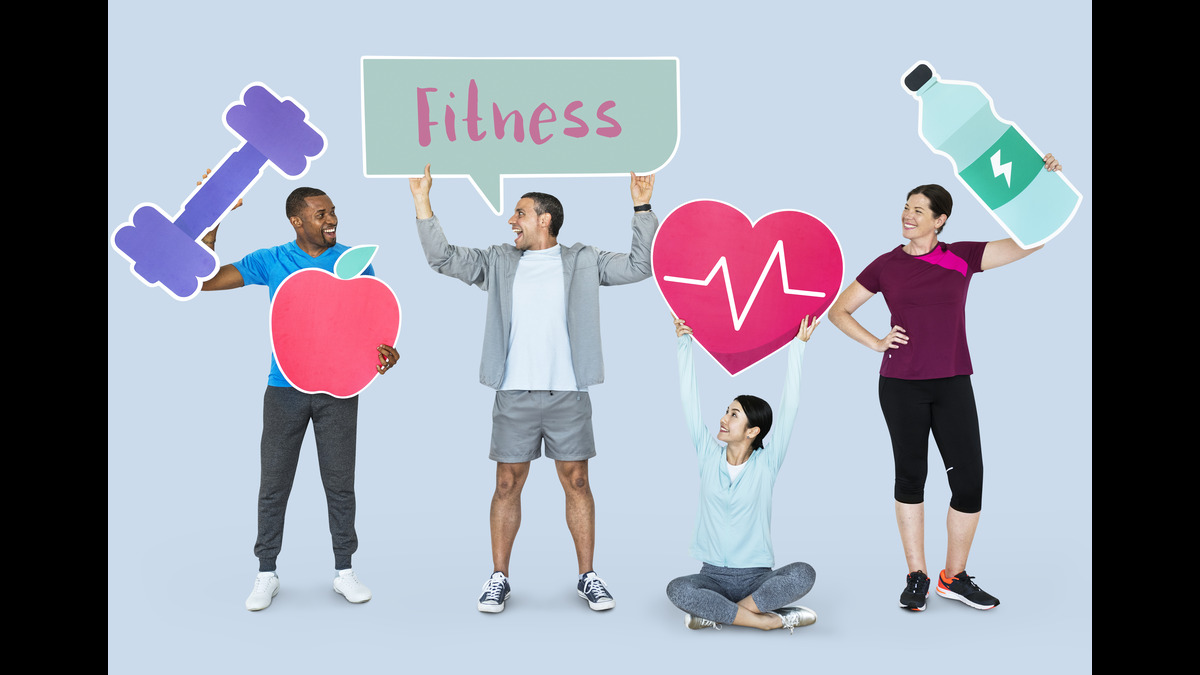Health Advantage Fitness is a concept centered around integrating physical activity and wellness to create a healthier, more balanced lifestyle. Whether you’re new to fitness or a seasoned enthusiast, understanding the health advantages of regular exercise and effective fitness strategies can help you achieve your goals. This article explores the benefits of fitness, key strategies for success, and answers common questions about maintaining a healthy and active lifestyle.
The Health Advantages of Fitness
- Improved Physical Health
Regular exercise boosts cardiovascular health, strengthens muscles and bones, and enhances flexibility. Activities like strength training, yoga, and aerobics improve physical resilience, reducing the risk of chronic illnesses like diabetes, heart disease, and osteoporosis. - Enhanced Mental Well-Being
Fitness isn’t just about physical health—it has profound effects on mental health. Regular workouts reduce stress, alleviate symptoms of depression and anxiety, and improve overall mood by releasing endorphins, the body’s natural feel-good hormones. - Increased Energy and Productivity
Staying active improves blood circulation and oxygen flow to the brain, resulting in better focus, sharper memory, and higher energy levels throughout the day. - Better Sleep Quality
Exercise promotes better sleep by helping regulate your body’s natural sleep-wake cycle. A mix of cardio and relaxation exercises like stretching or yoga can enhance sleep quality. - Weight Management
Fitness plays a key role in maintaining a healthy weight. It helps burn calories, build lean muscle mass, and improve metabolism, making it easier to achieve and maintain a balanced body weight.
Strategies to Maximize Fitness Benefits
- Set Clear Goals
Whether it’s losing weight, building strength, or improving endurance, having specific, measurable goals helps you stay motivated and track progress. - Find Activities You Enjoy
Choose workouts that align with your interests, such as dancing, swimming, running, or group fitness classes. This increases consistency and long-term commitment. - Create a Routine
Consistency is key. Establish a fitness schedule that fits your lifestyle, balancing cardio, strength training, and flexibility exercises. - Stay Hydrated and Eat Well
Pairing fitness with proper nutrition and hydration optimizes results. Fuel your body with whole foods, lean protein, and healthy fats while staying hydrated. - Rest and Recover
Overtraining can lead to burnout and injuries. Allow your body time to recover with adequate rest and restorative activities like stretching and massage.
FAQs: Health Advantage Fitness
1. What does Health Advantage Fitness mean?
It refers to the overall benefits of incorporating regular exercise and healthy habits into your lifestyle. These advantages include improved physical, mental, and emotional well-being.
2. How often should I exercise to see results?
For general health, aim for at least 150 minutes of moderate aerobic exercise or 75 minutes of vigorous activity per week, combined with two days of strength training.
3. Can fitness improve mental health?
Yes, regular physical activity boosts endorphins, reduces stress hormones, and improves brain function, leading to better mood and mental clarity.
4. Is weightlifting suitable for beginners?
Absolutely! Beginners can start with light weights and focus on proper form to avoid injuries. Gradually increase intensity as you gain strength.
5. What’s the best time to work out?
The best time is when you can stay consistent. Morning workouts boost energy for the day, while evening sessions help release stress and tension.
6. How can I stay motivated to exercise regularly?
Set realistic goals, track progress, find a workout buddy, and celebrate milestones. Choosing enjoyable activities also keeps motivation high.
7. Do I need a gym membership to stay fit?
Not necessarily. Bodyweight exercises, outdoor activities, and at-home fitness apps offer effective alternatives to gym-based workouts.
8. How can I measure my fitness progress?
Track metrics like endurance (how far you can run or cycle), strength (weight lifted), body composition, or energy levels to gauge improvement.
9. Can older adults benefit from fitness?
Yes, regular exercise helps older adults maintain mobility, prevent falls, and reduce the risk of age-related conditions like arthritis and osteoporosis.
10. How important is stretching in a fitness routine?
Stretching improves flexibility, prevents injuries, and aids muscle recovery, making it an essential part of any workout routine.
Tips for Busy Individuals
- Incorporate Short Workouts: Even 10-15 minute sessions can add up over time. Try high-intensity interval training (HIIT) for quick, effective workouts.
- Use Technology: Fitness apps and trackers help plan workouts, set reminders, and track progress on the go.
- Combine Activities: Turn daily tasks into opportunities for movement, like walking during calls or using stairs instead of elevators.
- Prioritize Sleep: Rest is as vital as exercise. Quality sleep boosts recovery and ensures peak performance.
- Stay Accountable: Share goals with friends or join fitness communities for support and encouragement.
Conclusion
Health Advantage Fitness is about more than just hitting the gym; it’s a holistic approach to enhancing your physical and mental well-being. By incorporating regular exercise, eating well, and staying consistent, you can unlock the numerous health benefits of an active lifestyle. Use these tips and FAQs as a guide to embark on your fitness journey and achieve long-term wellness.










